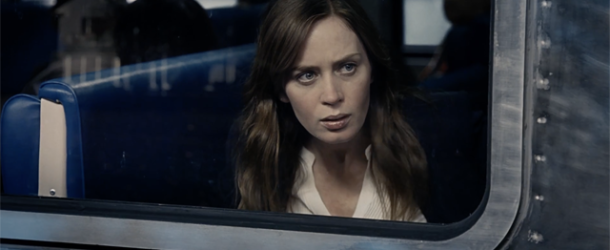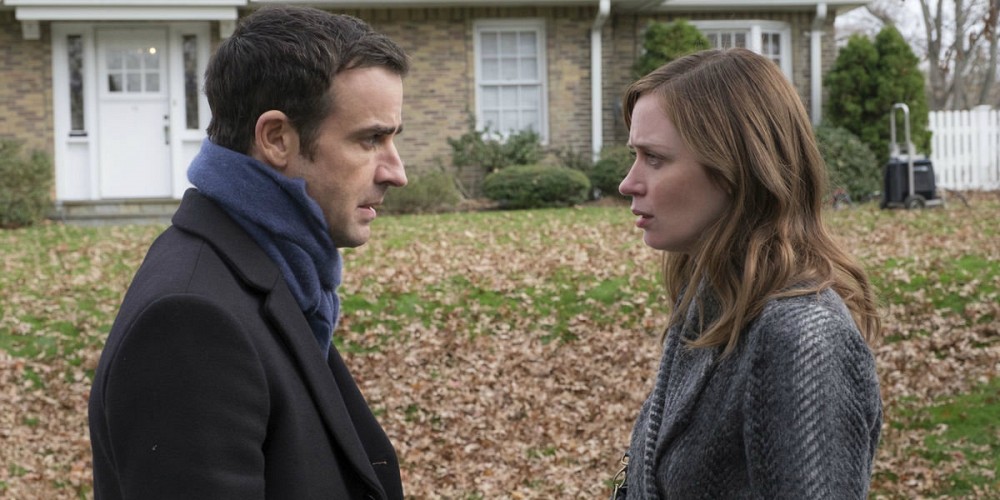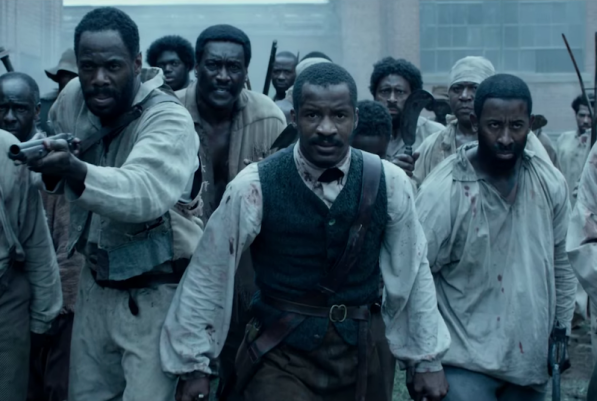The Girl on the Train
After the success of 2014’s Gone Girl, I was sure there would be a new wave of suspense novel adaptations flooding the big screen. Crime thrillers are constantly atop the best-seller list, but little development has been undergone with the genre except for The Girl on the Train, written by Paula Hawkins. If you’ve seen the trailer, it basically sells itself as the new Gone Girl.
The plot follows three narratives: Rachel (Emily Blunt), Megan (Haley Bennett) and Anna (Rebecca Ferguson). These three women are tied together in strange ways. The primary “protagonist” Rachel is the titular Girl on the Train. On her way to and from work, she watches people go about their day, to the point of near-obsession with a girl she’s never met (Megan). Yet, that’s not the only house Rachel stares at. Just a few houses down from Megan, lives Rachel’s ex-husband and his wife, Anna. This peculiar routine of passerby-stalking is immediately changed when a major crime is committed and all evidence points to Rachel.
As expected, the story is purposely misleading and has as many twists as a pretzel. (No, not a pretzel stick, the traditional kind.) Rachel is a hot mess. She’s an alcoholic with a history of blacking out. So, when the majority of the movie is told from her perspective, there’s always uncertainty about what is truth.
The cast they’ve gathered is great. In addition to the aforementioned leading ladies, it stars – Luke Evans, Allison Janney, Edgar Ramirez and Justin Theroux. However, these names are wasted as they are given too little screen time or go through character turns for no discernible reason. For example, Allison Janney shows up as a seeming hard-nosed detective searching for answers, but disappears for the majority of the movie and lives by a wait-and-see (till the criminal comes to me) approach. Major credit goes to Rebecca Ferguson, who owned last year’s Mission: Impossible Rogue Nation. Her subtle role as the frail and passive Anna makes her unrecognizable, but she too is also underutilized.
I can’t say if the problem lies with director Tate Taylor (Get on Up, The Help) or the screenplay by Erin Cressida Wilson (Men, Women & Children). The crafting of The Girl on the Train feels haphazard and without purpose. When adapting a book, cutting too much of the original story is often the problem. However, much of this movie feels like fluff conversations added to the script to make the audience expect one twist on top of another, instead of helping the story reach a solid conclusion.
Since the comparison has been made, I will bring up Gone Girl. That film combined a great cast, a great director, score and mood to stand out above its genre. Not only that, but it challenged the genre with its own tropes. Most people will tell you that, after seeing that movie, they developed a few trust issues. Girl on the Train attempts to leave you guessing, but ends just as any 90s/early 00s thriller would, with no effect afterward.
Typically with suspense flicks, the joyless viewer will put the clues together and attempt to guess the end, but it’s best to just go along for the ride. The end of this Train ride is disappointing, but the performance of Emily Blunt makes it a better journey than it deserves to be. C-
Birth of a Nation
This may seem trivial, but the class I remember most from my university education was Introduction to Film at USU. Not only did we watch several great films, but it also educated me on cinematic terms, which gave names to why I loved the aspects I loved. Sadly, not every film shown in the class was essential viewing. In an attempt to test the patience of the class, our teacher made us sit through three hours of D.W. Griffith’s 1915 Silent Film, Birth of a Nation. In addition to being dreadfully boring, it was plagued with rampant racism. Spoiler alert: The Ku Klux Klan saves the day at the end.
So, when this past Sundance Festival came around and Nate Parker started receiving high accolades for his passion project, Birth of a Nation, I was a bit confused as to why that blot on cinematic history would ever be remade. As you’ll read, these films are similar in name only.
In the midst of the slave-owning South, Nat Turner (Nate Parker) has grown up in a slightly more benevolent slave-owning family (if that can be a thing). He was taught how to read and was largely kept from the atrocities that befell other slaves. This education led him to become a preacher on the plantation and was eventually hired out to preach to other plantations. In doing this, he began to see the horrific state of the slaves in his county and formed feelings of immediate resentment, which eventually led to an uprising against the slave owners in the area.
It’s a struggle to make a film stand out in a genre that has been played out countless times. With both war and slavery films, it’s hard to show something new. Often, attempts are often quickly forgotten. Birth of a Nation subverts that by only showing us this gruesome era from the eyes of one man in the thick of it. The audience clearly knows about the horrors of that time period and the movie doesn’t dwell on every single injustice happening at that time. Instead, we see only what Nat sees. It is just enough to remind the audience about what was happening, but also give context as to what makes a passive man seek justice.
Being low-budget only hurts this movie in terms of some of the performers. Much of the prep from various slave owners seems taken from the Foghorn Leghorn school of acting (ex. I say, I say, I say). Parker is also one of the weaker spots initially, but as the movie progresses, so does his talent for making the audience feel his emotional journey. Armie Hammer plays a great role as Samuel Turner. He grew up with Nat, but when he is forced to grow up and take his father’s plantation, he also struggles to accept the status quo of the South. His primary intent is to not be humiliated or be seen as passive, which leads to very hasty decisions.
The end of the movie gets very graphic in terms of violence. It’s nowhere near the cartoonish Django Unchained, but it’s also not afraid to show grisly scenes and their consequences.
Birth of a Nation may not be the best in its genre, but it also excels because of the care Parker puts into it. Each shot feels purposeful. The scope feels grand, even though it’s a very small story. It may not be a theater experience, but as a rental it will be a rewarding experience nonetheless. B











Comments are closed.